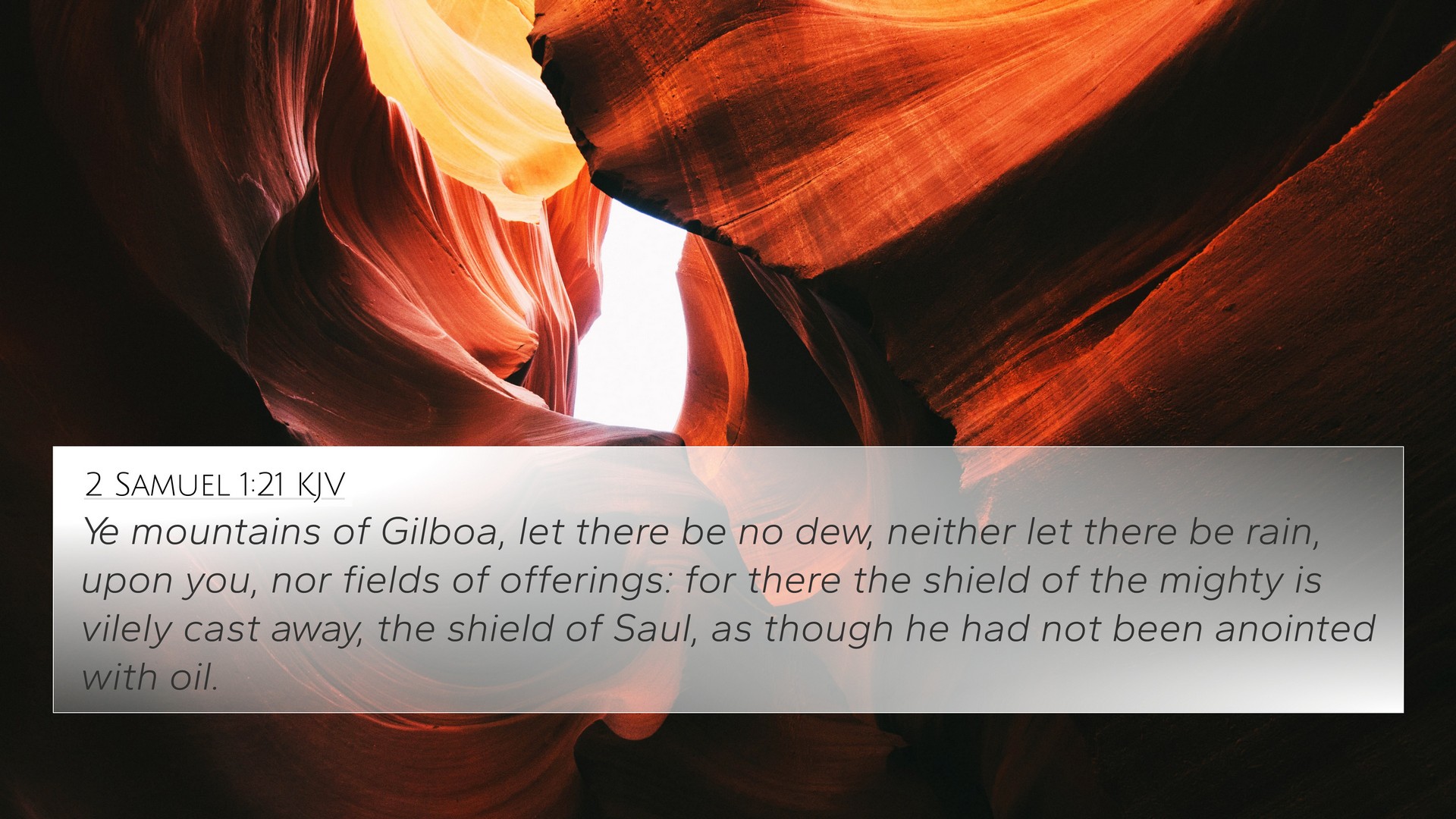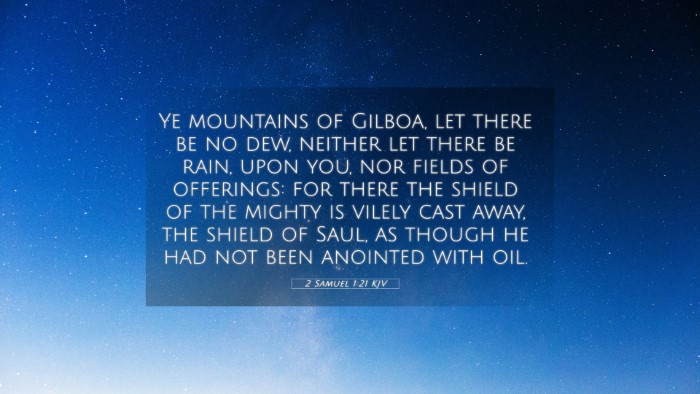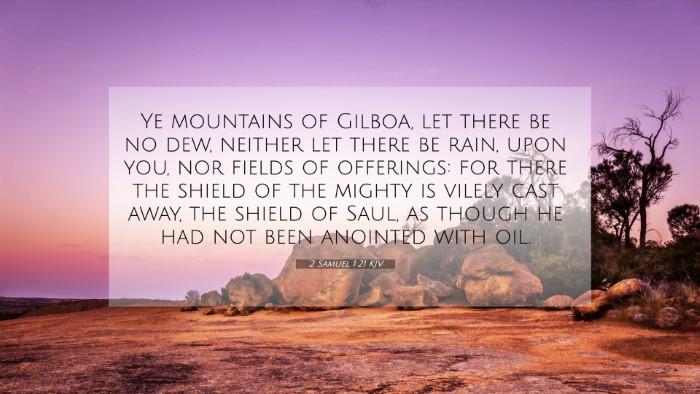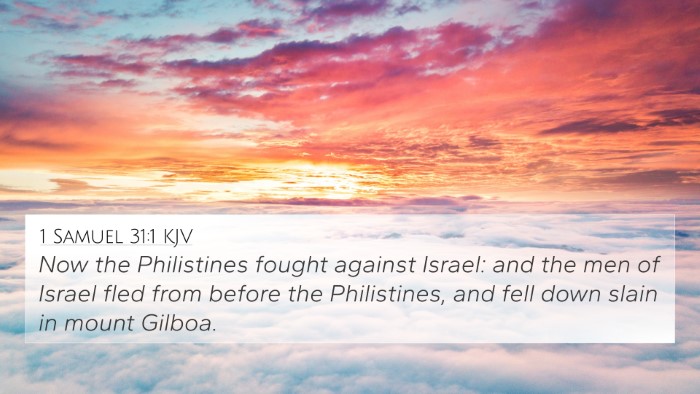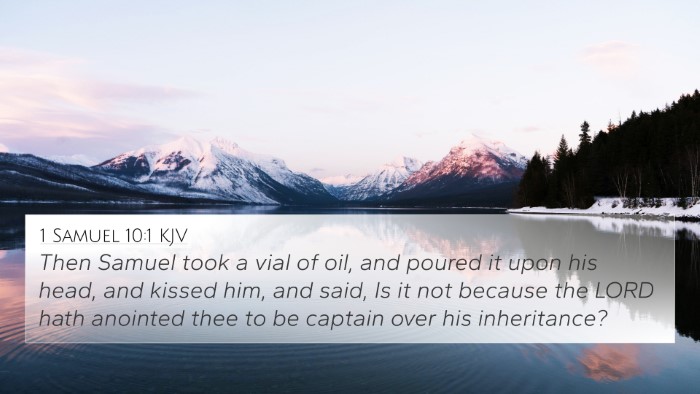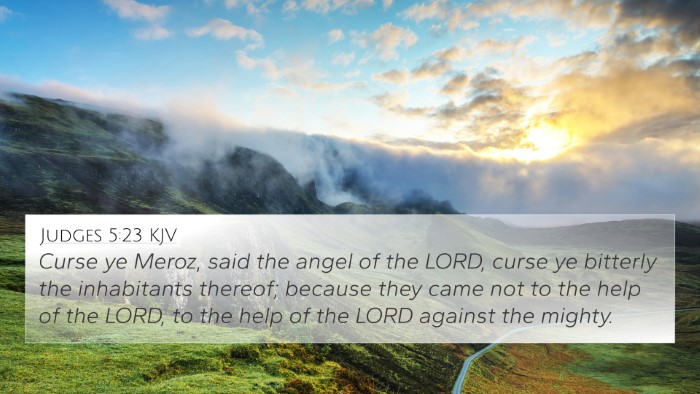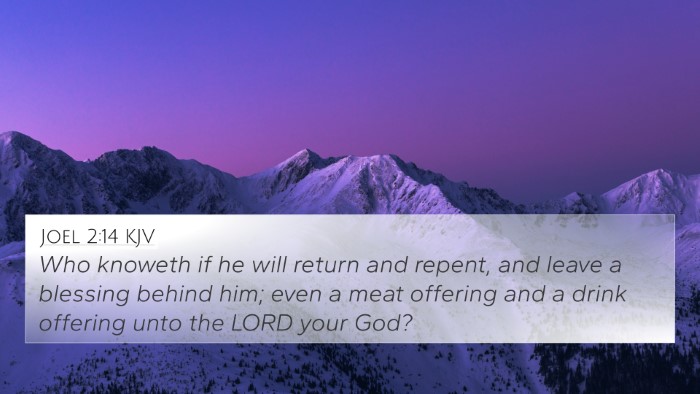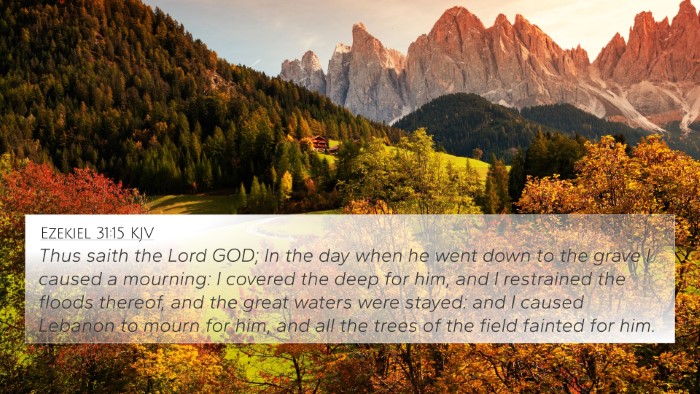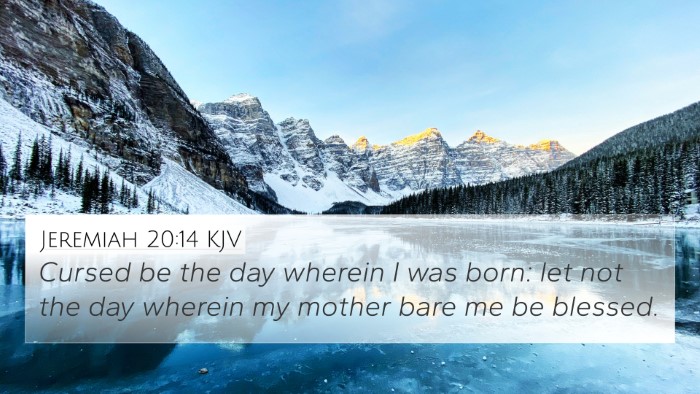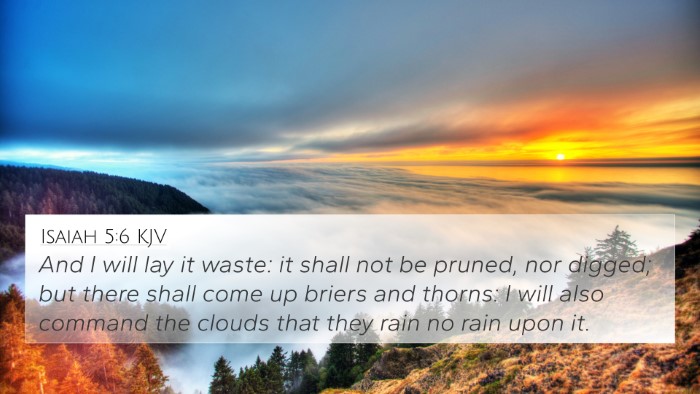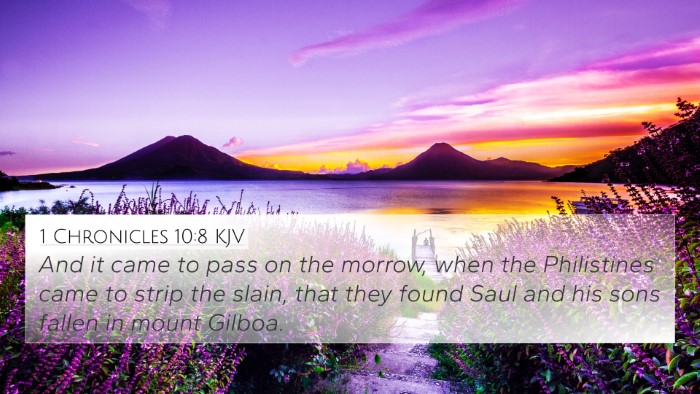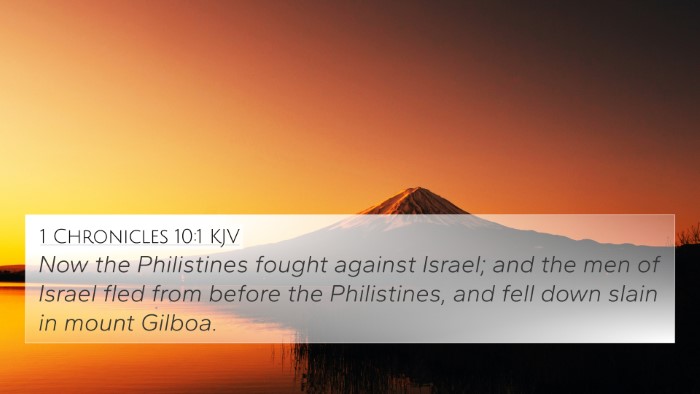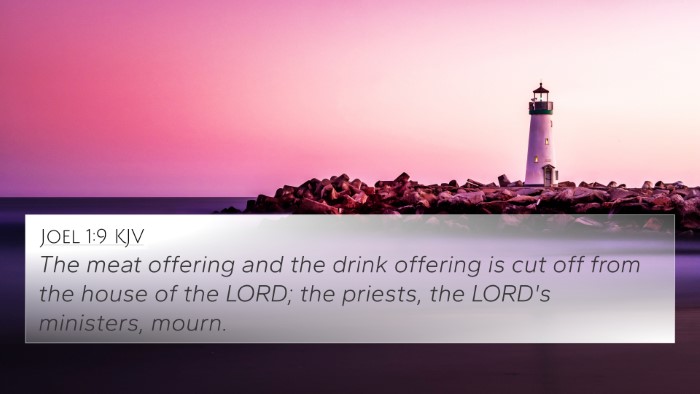Understanding 2 Samuel 1:21
Bible Verse: 2 Samuel 1:21 - "O mountains of Gilboa, let there be no dew or rain upon you, nor fields of offerings! For there the shield of the mighty was defiled, the shield of Saul, not anointed with oil."
Summary of 2 Samuel 1:21
This verse encapsulates David's lamentation over Saul's death, emphasizing the tragic nature of his fall and the consequences that befall the land in the wake of his demise. The mention of the "mountains of Gilboa" signifies a location marked by sorrow and loss.
Key Insights from Public Domain Commentaries
- Matthew Henry: He points to the deep emotional response of David to Saul's death, highlighting the sorrow he feels not just personally but for the state of Israel and the leadership they lost. Henry interprets this verse as a sign of the heavenly displeasure expressed through the parched land.
- Albert Barnes: Barnes notes the specific curse upon Mount Gilboa as a reflection of David's mourning. He emphasizes how this curse is a poetic expression of grief, indicating that Saul's reign ended in disgrace. The lack of dew symbolizes the withdrawal of divine blessing upon the land.
- Adam Clarke: Clarke elaborates on the symbolism of the shield not being anointed with oil, suggesting that it represents a lack of divine approval and support for Saul, who had fallen from grace. Clarke relates this to the broader themes of leadership, anointing, and the rhythms of blessing and curse within Israel’s history.
Thematic Connections
The verse opens up avenues for thematic Bible verse connections that relate to loss, leadership, and divine favor. As we explore the broader narrative context, it becomes evident how David’s lament serves as a precursor to his own rise to leadership amid a fall from grace in the previous generation.
Cross-References to 2 Samuel 1:21
- 1 Samuel 31:8-10 - The death of Saul and its implications.
- 2 Samuel 3:38 - David grieves for Saul and illustrates his respect for the fallen king.
- Psalm 68:23 - A poetic lament that similarly calls for divine judgment on enemies.
- Deuteronomy 28:15-19 - Curses upon disobedience; relating the land's condition to divine favor.
- Jeremiah 14:3 - Lament over drought, linking the themes of land suffering due to sin.
- Isaiah 33:9 – A parallel of the deep mourning of the land in response to the people's unfaithfulness.
- Philippians 3:18-19 - A New Testament reflection on those who face destruction due to their ungodliness.
Spirit of Mourning in Biblical Texts
The sorrow represented in this verse resonates through various Bible verses that relate to each other, showcasing the struggles of leadership in Israel. Such expressions of grief connect with other narratives of mourning in scripture, providing a rich tapestry of human emotion found within the biblical narrative.
Scriptural Cross-Referencing
Using scriptural cross-referencing tools, we can delve deeper into the connections between passages. Identifying how the themes in 2 Samuel 1:21 resonate with other scriptures allows for a richer understanding of God's workings throughout history.
Concluding Thoughts
The lament of David reflects a profound connection between national identity and divine favor, a theme that echoes throughout Christian theology. Exploring this verse leads to valuable insights ripe for Bible cross-reference guides and shared studies, inviting all believers to engage in cross-referencing Bible study methods.
